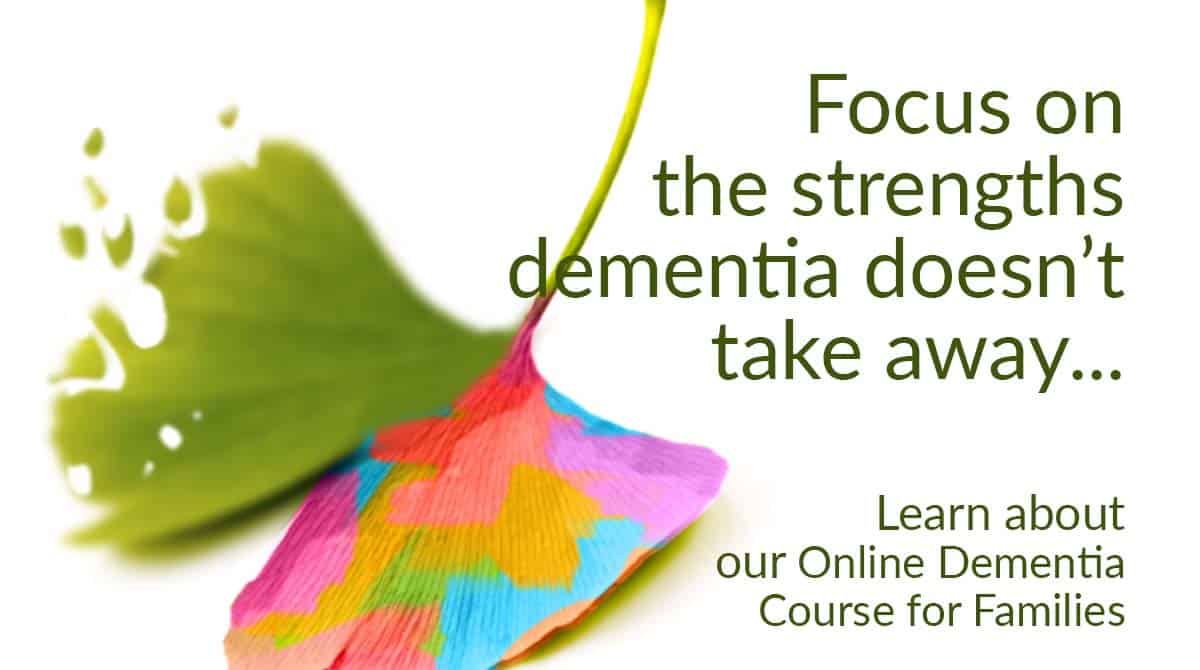How you can support someone living with dementia
In 2017 the New York Times ran three articles on Alzheimer’s and dementia. The central piece, “Fraying at the Edges: Her Fight to Live with Alzheimer’s” is a lengthy word and video essay about a woman’s experiences in being diagnosed with MCI and then Alzheimer’s, and beginning a new life with dementia. Reporter N. R. Kleinfield tracked Geri Taylor and her husband Jim’s experience with dementia over two years, describing Geri’s courageous and honest acceptance of her condition, her husband’s support in defying its stigma, and their determination to continue to experience life as fully as possible. Their story illustrates that living with dementia happily is possible.
Accepting and navigating the changes that dementia brings
NPR interviewed Kleinfield on its On Point program (see “What It’s Like To Live With Early Stage Alzheimer’s”). Kleinfield described Geri’s awareness of her condition and how open she was to discussing what was happening to her. He described how Geri and Jim were determined to accept who Geri was at present, and who she would become, rather than see the changes in her cognitive abilities as losses of herself.
I read the article and listened to the interview and saw a woman losing her rational thought processes but not her intuitive thought processes. I saw a couple whose experience of dementia was less devastating because they chose to divvy up the tasks of day-to-day living between themselves, with Jim taking over the rational thought tasks and joining Geri in what she is still very able to do—living life intuitively. I saw Jim respecting Geri’s experience of the present, and keeping her at home where her functioning was maintained longer by her familiar environment.
Jim and Geri are giving us a beautiful demonstration of the same success and comfort my clients show us here at DAWN. There is a roadmap—a set of identifiable abilities and disabilities in dementia, a way to provide support that makes caregiving companionable.
When Geri describes her symptoms to her neurologist, he tells her she is describing the loss of executive functions, such as the ability to see steps of a task in sequence. She describes becoming unable to track time, to recall facts like names, dates, and places and then use them to order her activities. She explains how when her inability to keep track of things overwhelms her, watching a movie or listening to music helps. She says that when she is taking or editing pictures the disease doesn’t exist. She describes the camaraderie of being at Memory Works, where being forgetful was accepted and having fun was the goal—no rational thought necessary.
Peace in dementia is found by focusing on intuitive thinking
Geri is describing the same pattern of rational thought loss that we see in our clientele. She describes how she finds peace and success in doing things that require only her intuitive thinking processes.
I’ve worked closely with dozens of people living at home with dementia in Moscow, Idaho, over a decade, and the pattern never varied. Kleinfield documented it with Geri, a former nurse—someone who had a well-trained rational mind. I’ve seen it with scientists and artists, professors and musicians, ranchers and geologists. It didn’t matter whether my clients were more intuitive or more rational due to earlier education or inclination. All experienced the same pattern of loss as their dementia progressed: loss of their rational thought processes and retention of their intuitive ones.
Why is seeing the pattern so important?
It’s because seeing the pattern allows us to provide care that truly supports the person with dementia. When we stop requiring people who are losing their rational thought processes to use them, they stop failing and experience less distress. Less distress means fewer behaviors. Fewer behaviors means decreased caregiver stress. With fewer behaviors and less caregiver stress, people can stay home and age in place. Aging in place is not only preferable to most, but far cheaper—both for families and state Medicaid programs.
It’s that simple. And it’s that critical. Dementia is causing profound suffering in this country, and bankrupting a generation of families. We can reduce the misery and the expense so easily by simply recognizing the pattern and providing care tailored to meet the needs that dementia creates. That’s our goal here at DAWN: we teach families to recognize the pattern—to follow the roadmap—and then we give them the tools they need to support their loved one in living with dementia happily.
§



